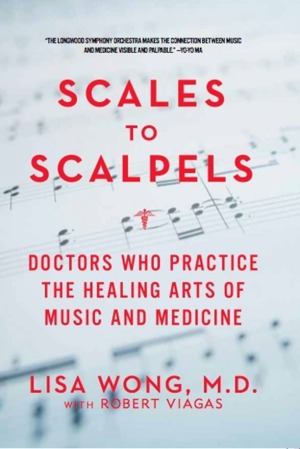Playing for Alzheimer’s Patients
I’m playing in the “Symphony in the Schools” program this year with the Hartford Symphony, and we recently had several professional days where each of the seven ensembles performed for the others. We also spent some time talking about the program with our new Education Director; we play in senior centers and assisted living facilities, as well as public schools. Several colleagues raised the issue of playing for Alzheimer’s patients, and how we are not really prepared to do this, as we’ve had no special training. Our normal programs don’t necessarily work for this audience.
I was immediately reminded of Dr. Lisa Wong, her book Scales to Scalpels, and the work the Longwood Symphony, comprised of members of the medical community, does within the medical community in Boston. Lisa spoke about performing for Alzheimer’s patients:
The quartet went to a nursing home to play for Alzheimer’s patients, some of whom hadn’t spoken in months, or even years. They started with Mozart, and then moved on to show tunes. Suddenly the audience who couldn’t communicate started singing and clapping; they remembered all the words from memory. This experience was extremely moving for the members of the quartet, who all had a personal connection with Alzheimer’s, and to the caregivers and nursing staff.
Another ensemble had the experience of playing at a psychiatric hospital for several patients with severe psychotic illness. One patient would chronically either rebuke the caregivers angrily, or ignore them. She came to the performance, sat and listened calmly, and then she thanked the medical musicians for their music. I think this patient was particularly moved because her clinicians were doing something special for her.
Following the performance, a psychiatry resident and violinist said: “I’ve played small ensembles at healthcare settings before, but today’s performances were moving to me in a way I haven’t felt before. The experience of performing now for those individuals as a physician as opposed to an undergraduate was deeply powerful. I felt I was touching their lives in a very different but somehow related way. This was such a privilege.”
I recommend not only my article, which interviews Lisa about her book and the work of the Longwood Symphony, but her book, Scales to Scalpels, as well. It’s a fascinating read, exploring both the science of hearing and music, and the impact live music has on the community. And it tells the story of an amazing violinist/physician who certainly has made a difference.


No comments yet.
Add your comment